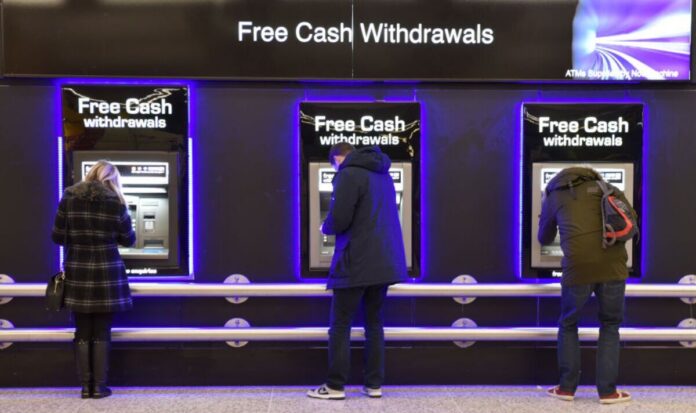We need traditional cash and digital innovation to thrive Our great nation has a proud history of financial innovation. It was the Bank of England that first standardised paper currency – saving people from lugging around heavy metal coins, way back in 1694. It was a proud Scot – John Shepherd-Barron – who invented the world’s first cash machine, installed on an Enfield high street in 1967. And it was we Brits who led the way in adopting plastic credit cards in the Sixties. That legacy lives on today. Today electronic payments are increasingly becoming the norm, with digital transactions surging from 45 per cent to a staggering 85 per cent over the past decade. It’s not just the young: around eight out of 10 people of retirement age are using contactless card technology at least once a month. The recent ‘Financial Lives’ survey revealed that more than 90 per cent of us have used contactless in the last year. And only 6 percent said they pay for most things in cash. But, as with any change, we must consider this progress in the round. And for many people, cash is still king. That could be your local fruit and veg market salesman, people keeping a close eye on their monthly outgoings, or a grandparent reaching for a fiver to slip into their grandchild’s birthday card. But, as Express readers know well, it is often the elderly or poorest who rely on cash the most. That is precisely why we have protected access to cash – both deposits and withdrawals – in our Financial Services and Markets Act 2023, which was signed on to the statute books in July. On Friday I set out what this will mean in practice. As Conservatives we believe in choice. No one should be forced away from something as important as the physical currency that has served us for generations. Even when most transactions are digital, it is a vital backstop knowing that physical notes and coins are there if needed. As we’ve seen with the ‘de-banking’ scandal, financial institutions are not infallible. In some parts of the world, cash is a final bulwark against abuse of state control. Our policy statement makes clear the vast majority of people in the UK should have a cash machine within one mile of where they live. In rural areas, it should be no more than three miles. Trending We also make clear that when we talk about access to cash, we mean free at the point of access – meaning no hidden charges when they come to take their cash out. Finally, and importantly – if a service is proposed to be withdrawn – the replacement service should be put in place before it is taken away. No more ‘close first and look at alternatives later’ which is what too many communities have faced. And our commitment is backed up by new powers for regulators to fine banks and building societies that fail to meet the standards that the Treasury expects of them. Our plan to protect cash doesn’t end with the ATM machine. In order to keep accepting cash, shops and businesses need nearby facilities to deposit their takings. So our new regulations cover that too. And that sits alongside cash-back with or without a purchase, the UK’s near 12,000 post offices and the new shared Banking Hubs, which have a bank-a-day to help fight the tide of branch closures. I had the pleasure of drawing out my own cash in Brixham’s Banking Hub last Wednesday. I was reassured by its ease and convenience and there are many more to come in the months and years ahead. Rightful indignation about ‘de-banking’ is because a bank account is a basic necessity in today’s age. But that’s of little use if you cannot access its most basic function. Many councils won’t even let you pay for parking with cash. Faced with this rapid change to something as fundamental as how we pay for our everyday goods and services, I believe that we have found the right balance. Protection and reassurance where required, while not impeding the innovation we need to allow our economy to be competitive and support its growth.
People should have a cash machine within a mile of where they live, says Andrew Griffith
Sourceexpress.co.uk
RELATED ARTICLES


